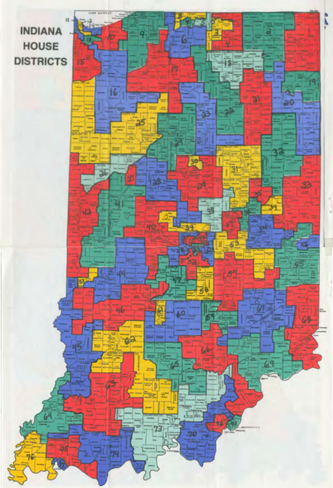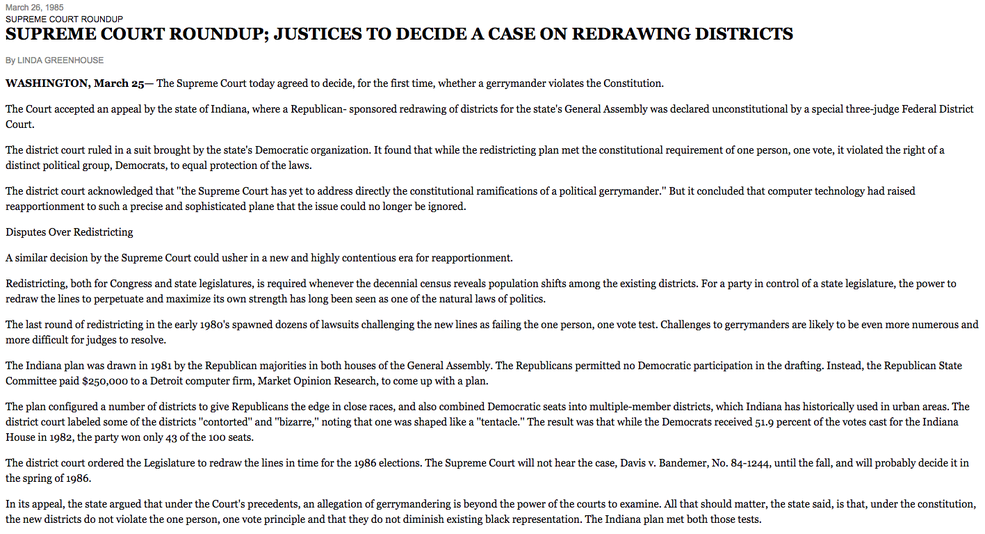DAVIS V. BANDEMER
The Court historically took great pains to stay out of the partisan gerrymandering conflict, calling it a "political thicket" and believing the state legislatures had both the right and responsibility to address any shortcomings in the redistricting process. That changed with Davis v. Bandemer.
The Case
"In 1982...Indiana Democrats filed suit in Federal District Court against...state officials, alleging that the 1981 reapportionment plan constituted a political gerrymander intended to disadvantage Democrats, and that the particular district lines that were drawn...were intended to and did violate their right...to equal protection under the Fourteenth Amendment." "Democratic candidates for the House received 51.9% of votes cast statewide but only 43 out of 100 seats to be filled...In Marion and Allen Counties, both divided into multi-member House districts, Democratic candidates drew 46.6% of the vote but only 3 of the 21 House seats were filled by Democrats." |
Indiana Democrats charged that a 1981 redistricting plan passed by Republicans, who at the time controlled the House, Senate, and Governorship, was unconstitutional. As proof, they cited disproportionate vote to seat ratios in the 1982 election and the secretive nature of the Republican redistricting. The District Court agreed and ordered the Republicans to create a new districting plan. The Republicans argued the redistricting met Supreme Court requirements for malapportionment and racial gerrymandering and appealed this case to the Supreme Court as Davis v. Bandemer.
Oral Argument: October 7, 1985
|
In Davis v. Bandemer, William M. Evans argued the case for the appellants, the Republican State Officials; while Theodore R. Boehm argued the case for the appellees, the Indiana Democrats.
|

